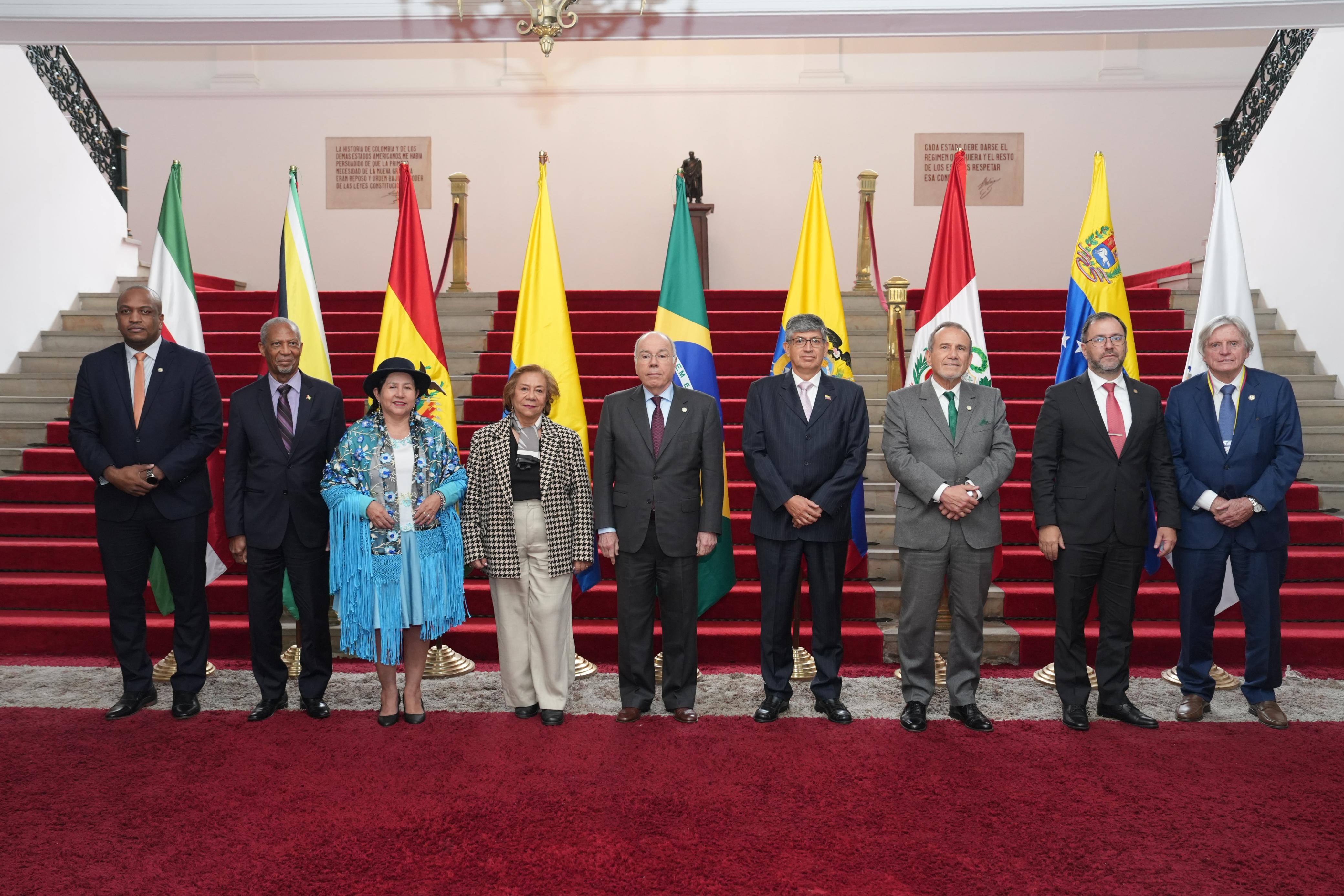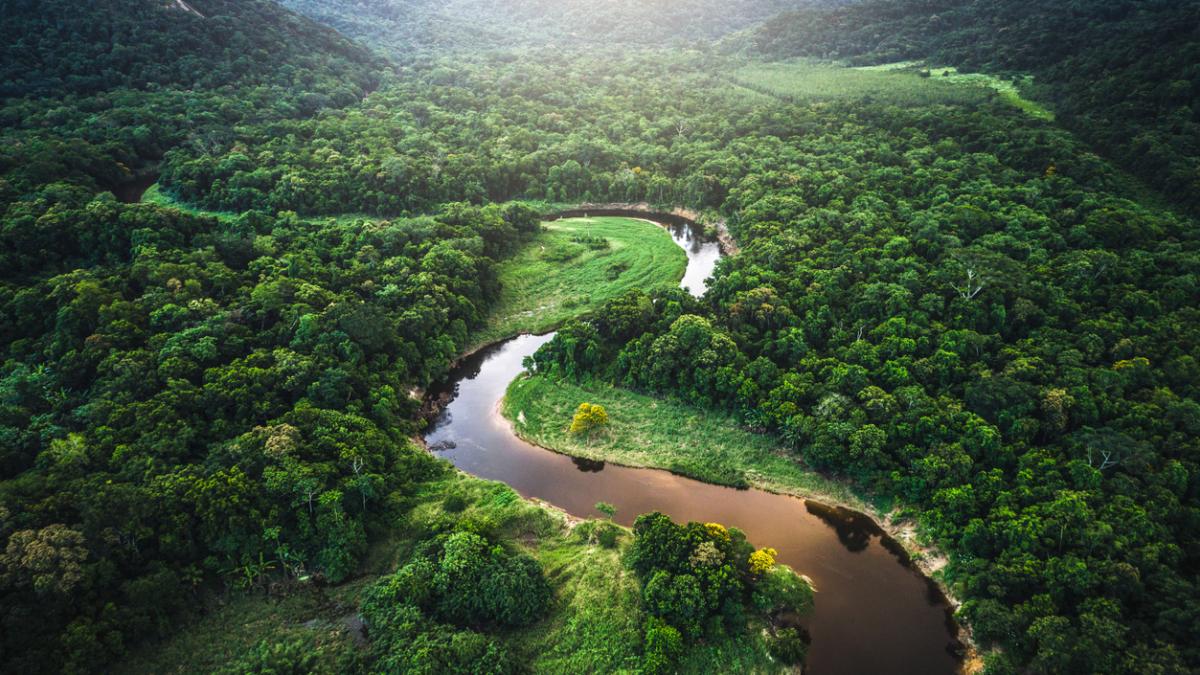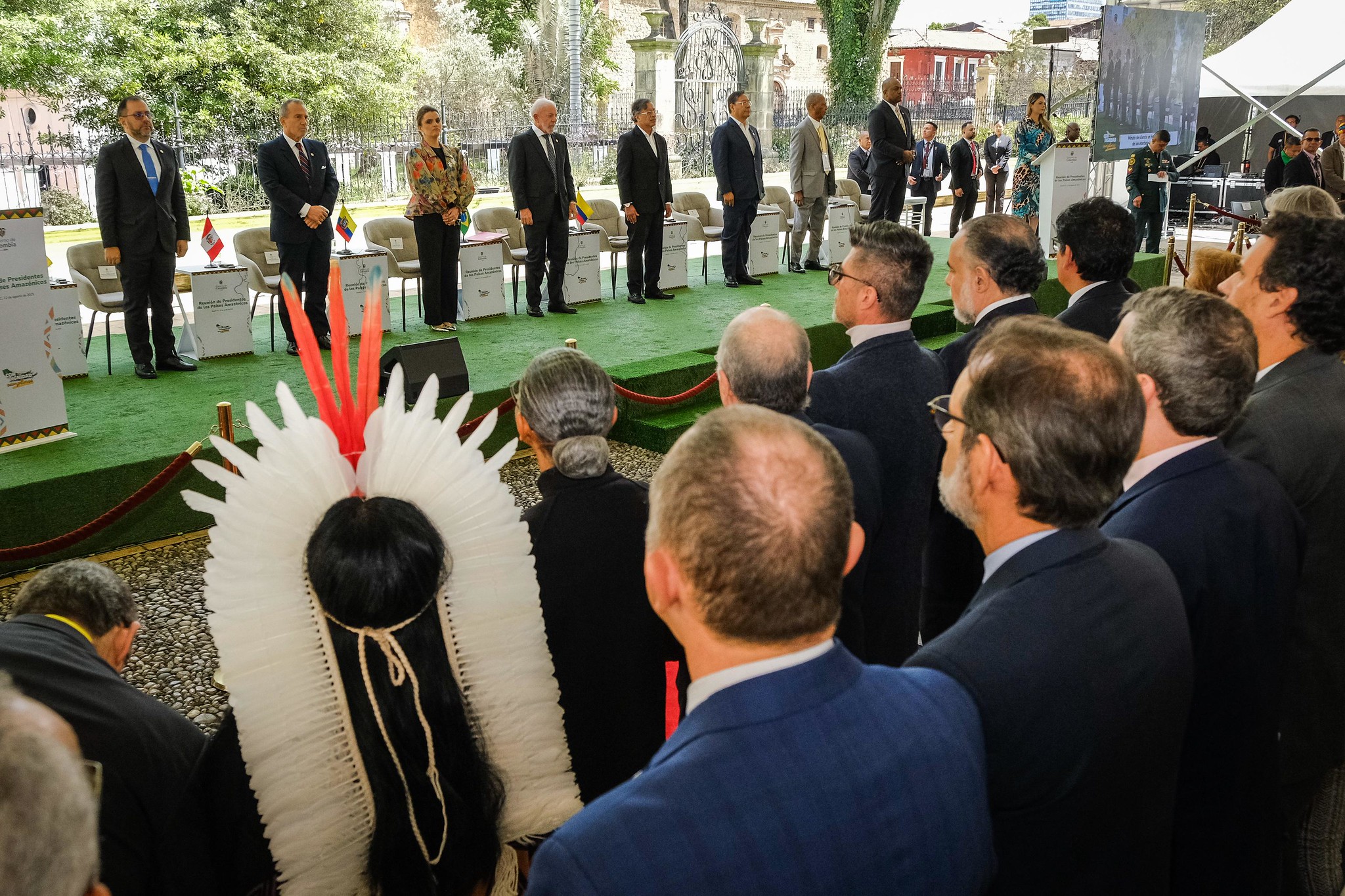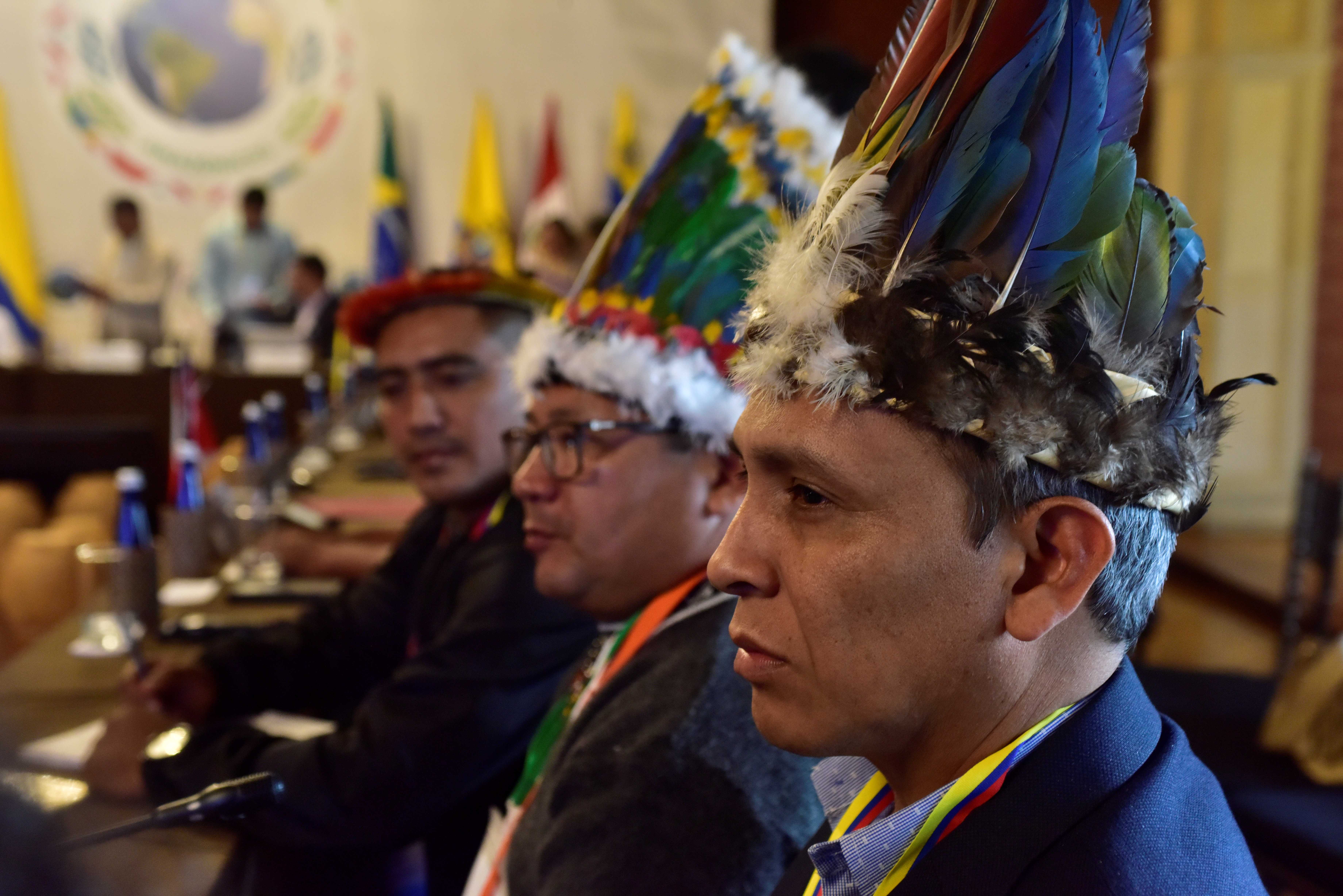Bogotá, August 21, 2025 (@OCTAnews) – On Thursday, ahead of the Fifth Summit of Amazonian Presidents, the Foreign Ministers of the eight member countries of the Amazon Cooperation Treaty Organization (ACTO/OTCA) met to finalize the Bogotá Declaration. This high-level decision-making body sets political guidelines, evaluates proposals, and reviews progress to fulfill OTCA’s mandate: promoting sustainable development in the Amazon and ensuring the well-being of its communities.
The meeting, held at the Palacio de San Carlos (headquarters of Colombia’s Ministry of Foreign Affairs), opened with a strong call for joint action to combat deforestation, conserve biodiversity, and safeguard the ancestral knowledge of Indigenous peoples.
“The political will of the eight OTCA member countries gives us a strong push to continue protecting the Amazon and promoting sustainable development. Today, we must show the world that we are committed to the integrated management of the Amazon Basin, its conservation, and the well-being of its communities. United, while respecting each country’s uniqueness, we will strengthen the Amazon Cooperation Treaty,” stated Martín von Hildebrand, Secretary-General of OTCA.
For André Corrêa do Lago, President of COP30, agreements like the Amazon Treaty will be key to the year’s most important climate summit: “OTCA is one of those organizations that has significantly strengthened its role and will be fundamental at COP30.”
Colombian Foreign Minister Rosa Yolanda Villavicencio reiterated the importance of regional unity to protect forests and water basins that are essential for ecosystem balance. “We are facing environmental challenges like never before, and that is why we must unite around OTCA to implement an integrated approach and international cooperation that ensures the well-being of Amazonian communities and Amazon biodiversity,” she said.
Along the same lines, Mauro Vieira, Brazil’s Minister of Foreign Affairs, highlighted the urgency of mobilizing resources on a large scale to enable a fair ecological transition. “The fight against climate change is now. Protecting natural resources must be the engine of regional development. That is why Brazil has proposed the creation of the Tropical Forests Forever Fund (TFFF), an innovative public-private financing mechanism based on a simple idea: rewarding those who keep the forest standing, making non-depletion profitable, and monetizing preservation so that conserving becomes more lucrative than destroying,” Vieira emphasized.
Yván Gil Pinto, Venezuela’s Foreign Minister, stressed that the Amazon Basin functions as a single system and should be treated as such by OTCA countries. He also noted that while Amazonian countries bear great responsibility, the greatest climate damage comes from the Global North: “It is those so-called developed nations that are largely responsible for climate change impacting the Amazon. That is why we must adopt a strong, unified stance.”
Celinda Sosa Linda, Bolivia’s Foreign Minister, underscored the urgency of protecting the Amazon and its people: “This is our opportunity to build joint and sustainable development and protect the very life of Amazonian peoples. If our forest thrives, so will our region, ensuring a promising future not only for this continent but for the world.”
Avoiding the Tipping Point
In the face of the critical threshold that could trigger irreversible changes in the Amazon — known as the “Tipping Point” — Arturo Félix Wong, Ecuador’s Ambassador to Colombia, called for increased efforts and greater support for OTCA initiatives: “It is vital to advance financial mechanisms that foster more programs, more research, and more action to protect the Amazon and its communities. The call is now.”
Rómulo Acurio, Peru’s Ambassador to Colombia, reiterated the Amazon’s central role in the Peruvian identity: “Sixty percent of Peru’s territory lies within the Amazon Basin, home to 51 Indigenous peoples. There is a clear roadmap, set in Belém, Brazil, in 2023, and we must follow it by boosting support for OTCA and its technical and research work.”
Melvin W.J. Bouva, Suriname’s Minister of Foreign Affairs, International Business, and International Cooperation, stressed: “The Amazon is not just a forest — it is the history and roots of our ancestors, the breath of our present, and the promise of a better future. That is the importance with which we must treat it.”
Finally, Compton Bourne, Guyana’s Ambassador to Brazil, praised ongoing efforts to protect Indigenous populations and to integrate the civil society sector into decision-making: “This will strengthen our capacity and make Amazon protection a comprehensive and fruitful endeavor.”
At the conclusion of the V Amazon Summit in Bogotá, the Foreign Ministers of the eight OTCA member countries approved 20 resolutions aimed at strengthening regional cooperation. Key issues include forest and biodiversity protection, integrated water resource management, scientific research and climate monitoring, Indigenous participation in decision-making, and securing financing and technology transfer to drive sustainable development in the region.
The Bogotá Declaration will be officially endorsed on Friday, August 22, during the Fifth Summit of Amazonian Presidents, attended by Colombian President Gustavo Petro and Brazilian President Luiz Inácio Lula da Silva.
Don’t forget to follow us on social media:
X: @OTCAnews
IG: @otca.oficial



